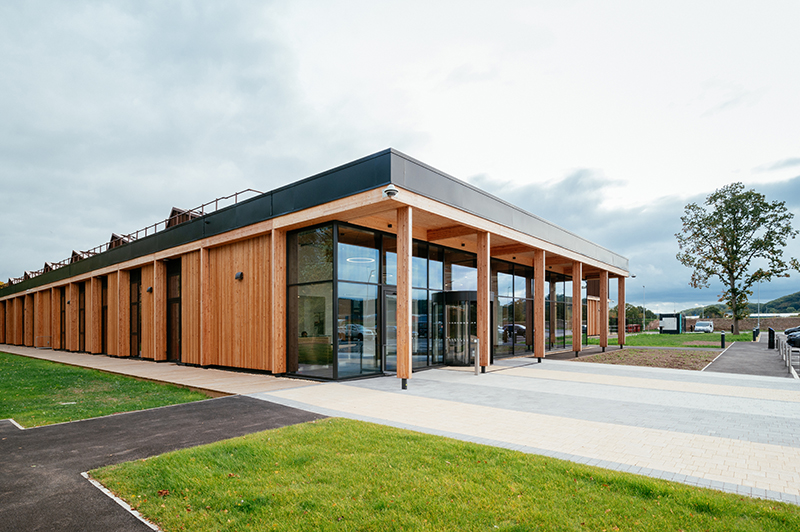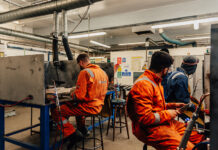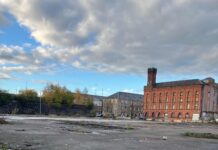
KNAUF Insulation has revealed how its products were used in the bespoke, timber frame wall panels for the New Model Institute for Technology and Engineering’s (NMITE) Skylon campus in Hereford.
The campus building is biophilic and described as an ‘exemplar’ of advanced timber construction techniques.
NMITE is a higher-education provider created from the ground up by its founders, teachers, donors, and a cohort of young designers. Its goal is to give young people a path to becoming integrated engineers that are ‘sustainability conscious’ and ready to find solutions for achieving net zero.
The organisation required a campus that facilitated its unconventional style of teaching and reflected the aspirations of the institution.
As well as making the campus itself an object for students to learn more about timber construction, NMITE wanted the site to be a ‘living lab’. Sensors would be used to monitor the structural, acoustic, and thermal performance, with the intention of sharing this data with the industry to develop insights.
Knauf Insulation’s products were used for the pre-fabricated panels supplied for the construction of the building. Taylor Lane built 20 panels offsite using a selection of non-standard materials and techniques specified by NMITE to demonstrate different approaches to students. Although each panel was unique, they all had a 240mm cavity that was insulated with OmniFit Slab 35.
The insulated panels were craned into position before being attached to the building. Some were attached to the cross-laminated timber (CLT) frame, others to steel, so students could observe varied approaches to construction.
OmniFit Slab 35 is a glass mineral wool slab designed for use in both timber and steel frame constructions. Its thermal conductivity is 0.035 W/mK, and OmniFit Slabs are said to provide sound insulation.
“We chose OmniFit Slab 35 for this project for several reasons,” said contracts director Paul Harris. “Its thermal and acoustic performance was important, but we also knew that, in the spirit of the project, we wanted to use materials that were sustainable. Glass mineral wool can be made from recycled glass and has low embodied carbon.”
Knauf Insulation’s glass mineral wool is manufactured in the UK at its plant in St Helens. The firm revealed that up to 80% of the glass content comes from recycled glass collected locally and processed in the Veolia plant opposite the factory.
The campus building is now home to students of the Centre for Advanced Timber Technology (CATT) and Centre for Automated Manufacturing (CAM).








